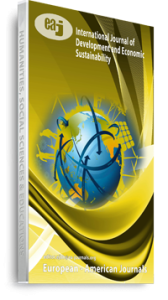This study examined the relationship between money market and economic growth in Nigeria. The study adopted money market instruments such as treasury bills (TBs), commercial papers (CPs) and bankers’ acceptances (BAs) as proxy for money market (independent variables), and gross domestic product (GDP) as proxy for economic growth (the dependent variable). Secondary time series data for the variables were collected from CBN Statistical Bulletin and the National Bureau of Statistics for the period 1989-2014. The study employed econometric techniques such as ADF, Unit Root Test, OLS, multiple regression and Granger Causality Test to analysed the study data; and found strong evidence that TBs, and CPs had positive and significant influence on GDP, while BAs had positive but insignificant influence on GDP in Nigeria. The granger causality test result revealed no directional causality relationship between TBs and GDP, meaning that TBs does not granger cause GDP and vice-versa. There was also no directional causality relationship between CPs and GDP, BAs and GDP. However, there exists bi-directional relationship running from CPs to TBs and BAs as it was established at 5 per cent level of significance. The study recommended among others that for the money market to influence meaningful economic growth and development in Nigeria, appropriate policies should be employed to strengthen and deepen the market.
Keywords: Bankers’ Acceptances, Commercial Papers, Gross Domestic Product, Money Market, Treasury Bills, economic growth

